What happens to waste materials and hazardous by-products when they leave the auto body shop? Do they vanish into the air and become a problem for nearby residents? The EPA oversees all auto body shops and holds them responsible for hazardous waste disposal.
Body shop owners and companies in the collision repair industry face fines and/or jail time if they violate laws when disposing of hazardous waste materials. Hazardous material as defined by OSHA and the EPA is very extensive and it requires proper storage, treatment and disposal.
Storing Hazardous Waste
Most paint and paint related materials are considered hazardous in the unfinished or “wet” form. The Materials Safety Data Sheet (MSDS) determines if a product is hazardous. Storage and disposal must be handled in accordance with EPA regulations. The EPA will provide auto body shops with the laws and regulations for handling hazardous products.
Drum containers are the most common method of storage; they must be properly labeled as waste and should include the following information:
• The generator’s name and address
• EPA designated identification of the product
• DOT proper shipping name and identification number of the major hazard
• Quantity of the major hazard
• Identifying labels or placards such as the flammable diamond
The area where the storage containers are placed has to be marked as “hazardous waste storage.” EPA regulations direct how long a drum may accumulate waste and how long it can be stored, depending on how much waste the drum contains. Drums must be removed by a licensed hazardous waste hauler for proper treatment.
Removing Hazardous Waste
Auto body shops and other generators of hazardous waste must complete a Uniform Hazardous Waste Manifest specific to the state in which the waste will be treated. The generator must supply information about the waste, and the manifest should be sent to the Waste Management Department for their state. Also required is a Land Disposal Restriction form, called a Land-Ban, which states that the waste must be treated and cannot be disposed of in a landfill.
The hazardous waste treatment, storage and disposal facility (TSDF) will return a section of the manifest to the generator within 35 days; if not received timely, the generator should contact the TSDF to inquire the status of the waste.
Body Shop Responsibility
The auto body shop or generator of the hazardous waste is held responsible even after the waste containers are picked up. It is important for the body shop owner to properly screen their contracted waste hauler.
Disposing of Hazardous Waste
Hazardous waste products have specific methods of disposal that reduce the impact to our environment and to our health. Some common waste disposal methods include:
Incineration: This is commonly used for solvents and chemicals with a high BTU value. Incineration does not always remove the hazard; many chemicals create hazardous by-products when burned such as cyanide, chloride and sulfides which can be even more dangerous than the original waste. The auto body shop should make it a point to know what is being done with the ashes. If the company is not properly disposing of by-products after incineration this could be a serious problem
Neutralization: This is a form of treatment that occurs with water-based wastes which have an acid or caustic nature. These wastes are corrosive and can destroy cells in living organisms. They are also destructive to vegetation and minerals.
Reactive wastes are difficult to deal with because they react with chemicals and become explosive or give off a toxic gas.
Auto body shops are responsible for protecting themselves, their technicians, the community and our environment by seeing to the proper handling of hazardous waste materials. They should take care to minimize the amount of waste generated and use proper methods of storage and disposal.
Jack Barker is the owner of Collision on Wheels, a mobile auto body shop serving consumers and businesses in the Dallas, Texas area. Collision on Wheels uses only water based paints that are safe for the environment and they pride themselves on being the forefront for promoting green practices. Jack Barker services the North Dallas Metro area: Dallas, Plano, Richardson, Allen, Frisco, Grand Prairie, Carrolton, Farmers Branch, Fort Worth, Garland and neighboring cities and communities in Dallas, Collin and Tarrant Counties.
75201, 75203, 75205, 75206, 75208, 75210, 75216, 75218, 75220, 75223, 75226, 75023, 75025, 75075, 75094, 75081, 75002, 75034, 75050, 75052, 75006, 75010, 75244, 76103, 76105, 76107, 76108, 76110, 76112, 76114, 76115, 76117, 76119, 76040, 76042, 76044
[Free HD] I'm Not Me Full Movie
7 years ago


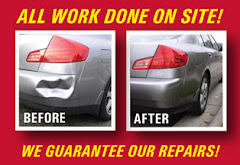




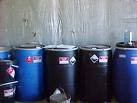


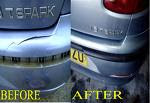

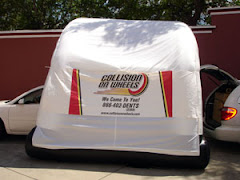
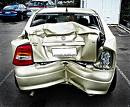
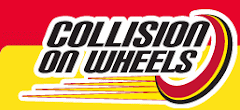


Good post! Thanks for sharing this information I appreciate it. God bless!
ReplyDeletecar repair salem ma